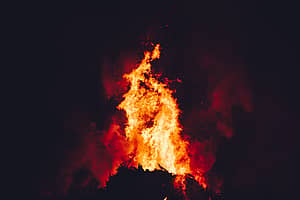With the recent explosion in life science projects, we have seen cities and towns across the State ramp up their enforcement of hazardous material related code compliance. Boston has been at the epicenter of this renewed effort through the revised submittal and inspection requirements associated with their Lab Registration and Annual Permit application process. While this process has been in place for many years, the Boston Fire Department (BFD) has recently made significant changes to the compliance process to accommodate the influx of new projects.
There are always tight timelines associated with these projects. To properly enforce the codes while meeting these tight timelines, the BFD has instituted a technical assistance policy requiring that the supporting documents that are now required to be submitted as part of the application process, be prepared and/or reviewed by, a recommended third party specializing in fire protection engineering.
While this may seem like a hardship at first glance, the result of the program has been to streamline the process and achieve approvals more quickly. However, for the benefits of the third-party program to be realized, it is imperative that the third party of choice be brought in as early in the process as possible. As the project progresses, a collaborative effort between your environmental health and safety consultant and the third party will help ensure your lab is fully compliant and ready to operate in time for your desired occupancy date.
So, what is expected of the lab operator during this process?
They must understand and be able to document the materials to be used and stored in their lab. They must be able to communicate the maximum expected quantities of each chemical that could be in-use at any one time and describe their waste procedures, as waste that is generated must be considered in the chemical totals.
Then, the building must be able to tell the tenant what their limits will be based on the location within the building. This is documented in the building’s Hazardous Material Building Master Plan Report or “414 Report” as it is commonly called. This is a building-focused document that outlines the building’s fire-ratings, control area strategy, and maximum allowable quantities (MAQs) per control area and per tenant. It includes whether there is a central chemical storage or waste area and whether these spaces are considered and designed as High Hazard occupancies.
It is this document that outlines the chemical limits for the lab tenant applying for their Annual Permit or Lab Registration. These reports should also include, or be accompanied by, an accurate inventory of each tenant’s space to demonstrate that the existing building is compliant with the MAQs outlined within the space. This report should be submitted along with the tenant’s Annual Permit application to validate the MAQ strategy for the tenant.
EHS Involvement
It is strongly recommended that the third party, as well as the environmental health and safety consultant, be brought on board as early into the project as possible. A lab operator must know the limitations of the building they are looking to lease or buy and involving a qualified third party is the only way to be confident that the space you are evaluating can meet your needs.
Furthermore, it can be very valuable for the third-party firm to review the architectural design of your lab as well. Small architectural or engineering changes, such as fire rated walls or proper fire protection design, can be the difference between a successful project and one that is mired in delays prior to approval.
The technical review process is here to stay in the City of Boston. The key is to make this new process work for you and your building or lab. These third parties are valuable resources that can make the difference in the success of your lab project.
This blog was written by Andy Shanahan, PE, Senior Project Manager, Associate Principal at WB Engineers, one of the qualified third-party vendors approved by the Boston Fire Department. Other approved vendors are Code Red Consultants and Jensen Hughes. If a company intends to use another vendor they should contact [email protected] and provide the name of the individual or firm in order to request approval.


